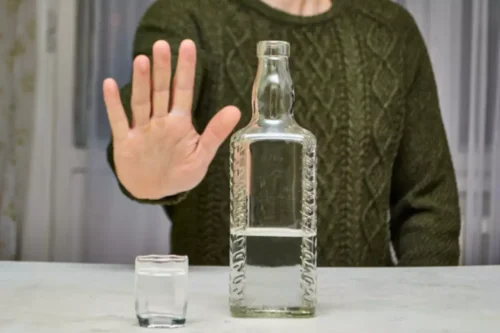
It’s like putting on a pair of rose-colored glasses and refusing to see the negative consequences that arise from excessive alcohol consumption. They get the kids to school on time, they attend obligations, fulfill responsibilities and are often very successful in many areas of life. From the outside, so-called functioning alcoholics seem to have their lives together.
- Remind them that admitting the need for help is the first step towards recovery.
- If you are struggling to have this conversation, you may also want to think about an intervention.
- A more appropriate way to screen patients for alcohol impairment would be to use a standardized and more detailed review of patterns of drinking and alcohol-related problems such as the ten item AUDIT.
- They may instead see the drugs and alcohol as an escape from their problems.
- Analyses using the 70 female offspring alone could not be adequately interpreted because there were only 9 non-deniers.
Recruitment of original SDPS probands
Discover the reasons people may become codependent and learn effective strategies for recovery. Discover the empowering steps of recovery from addiction, from therapy to resources for help. Explore the types of mental illnesses that lead to addiction, and effective integrated treatment approaches. Explore what the stages of addiction are, from initial use to treatment options, and navigate the path to recovery. Discover the life-changing benefits of rehab centers in PA, your key to lasting recovery from addiction. Discover how much alcohol can kill you, understand BAC, and learn prevention strategies for safer drinking.
The 5 Levels of Care in Rehab
You can also start researching rehab facilities, such as American Addiction Centers (AAC) to find out about what to expect during treatment, how to pay for services, and more. Any level of denial can also make it difficult for a person to seek or become willing to receive help for their substance use disorder. This guide will examine the concept of denial, explore some common signs and symptoms of denial to look out for, and learn how to help someone who is in denial about their addiction.
Fear of Change Can Lead to Lying or Blaming Others

Being dishonest or lying about alcohol consumption is pretty common with alcoholism. There may be many reasons why someone is hesitant to seek help — from lack of awareness to stigma and shame. In short, “there’s not a single image of AUD,” points out Sabrina Spotorno, a clinical social worker and alcoholism and substance abuse counselor at Monument. People who are high functioning with a drinking problem “seem to have everything together,” says Matt Glowiak, PhD, LCPC, a certified advanced alcohol and drug counselor. They’re able to successfully manage tasks around their work, school, family, and finances, he says.

Through the integration of behavioral techniques, CBT assists individuals in translating cognitive insights into tangible and sustainable modifications to their addictive behaviors. It may be difficult for someone who is in denial about their addiction to be willing to seek out some of the treatment options listed above. Additionally, speaking with a therapist, talking to people who are in recovery, confiding in their physician, and exploring recovery resources may empower a person in denial to seek help on their terms. If you feel that you sometimes drink too much alcohol, or your drinking is causing problems, or if your family is concerned about your drinking, talk with your health care provider. Other ways to get help include talking with a mental health professional or seeking help from a support group such as Alcoholics Anonymous or a similar type of self-help group.
Alcohol addiction can be a very sensitive issue, especially if it is being raised with the person for the first time. Consider the following steps to reduce the likelihood of them becoming defensive and increase the chance of them being receptive to your ideas. Priory is currently offering 10% off private self-pay addiction inpatient treatment, alcoholism and denial for admissions until 31st August inclusive. Get a free initial assessment with a therapist, to help you take the first step towards recovery. Alcohol use disorder is a chronic, lifelong, relapsing illness undermining happiness, work, relationships, and free will. Unveiling gender, ethnic disparities, and unique challenges in accessing treatment.
- Alcoholism denial refers to the psychological defense mechanism that allows individuals struggling with alcohol addiction to refuse, minimize, or rationalize their drinking habits.
- Unfortunately, alcoholics too often turn the realistic need to enter rehab into a battle between themselves and anyone who is urging treatment.
- This disorder also involves having to drink more to get the same effect or having withdrawal symptoms when you rapidly decrease or stop drinking.
- However, there is limited information about which characteristics of drinkers and which drinking problems relate most closely to that denial.
- Even if you or the person you know who is functioning with alcoholism hasn’t yet faced a DUI, isolation, or medical problems – it is never too soon to ask for help and receive the proper treatment.
- They’re able to successfully manage tasks around their work, school, family, and finances, he says.
- Staging an intervention can come across as confrontational if not handled with care, but they are a powerful tool for helping people recognise they need help.
- What might look like denial may actually be a lot more complicated and multilayered for people with high-functioning AUD.
- By addressing the physical, emotional, and psychological dimensions of co-occurring disorders, a holistic approach provides individuals with a comprehensive toolkit for overcoming denial and fostering sustained recovery.
- They can help create a structured intervention plan, guide conversations, and provide ongoing support throughout the recovery process.
However, as addictive behaviors become more disruptive to a person’s life, it can be harder to deceive oneself and others and ignore what is happening. This article explores the signs of addiction denial and when to seek help. When it comes to overcoming https://ecosoberhouse.com/ alcoholism denial and taking the necessary steps toward recovery, finding the right support is crucial. Encourage them to seek help, whether through support groups, counseling, or recovery programs tailored for alcohol use disorder (AUD).
- As probands’ biological children reached age 18, they were personally interviewed every five-years using SSAGA-based questions.
- Private treatment at Priory’s network of hospital sites and wellbeing centres can also put your loved one on the road to recovery from alcohol addiction.
- Navigate the path to dealing with depression with expert advice on treatments, lifestyle changes, and support.
- While you can’t make the choice for them, there’s a lot you can do to help a loved one who’s living with alcoholism.
- A person may consciously or unconsciously engage in addiction denial because they are struggling to accept the reality of their behavior.
Offering Protection To People With Alcoholic Denial
How Does Alcoholism Develop Over Time?

